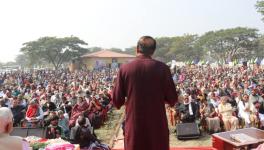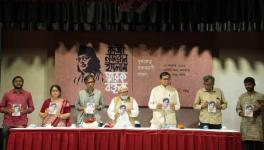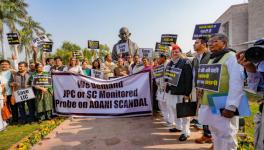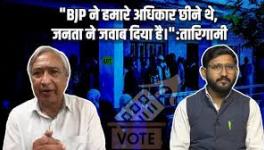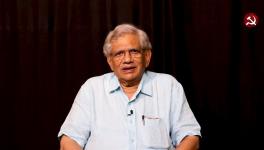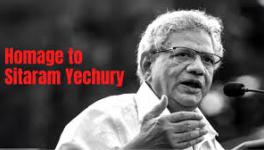Kashmir: Authorities Prohibit Political Parties From Commemorating Martyrs of 1931
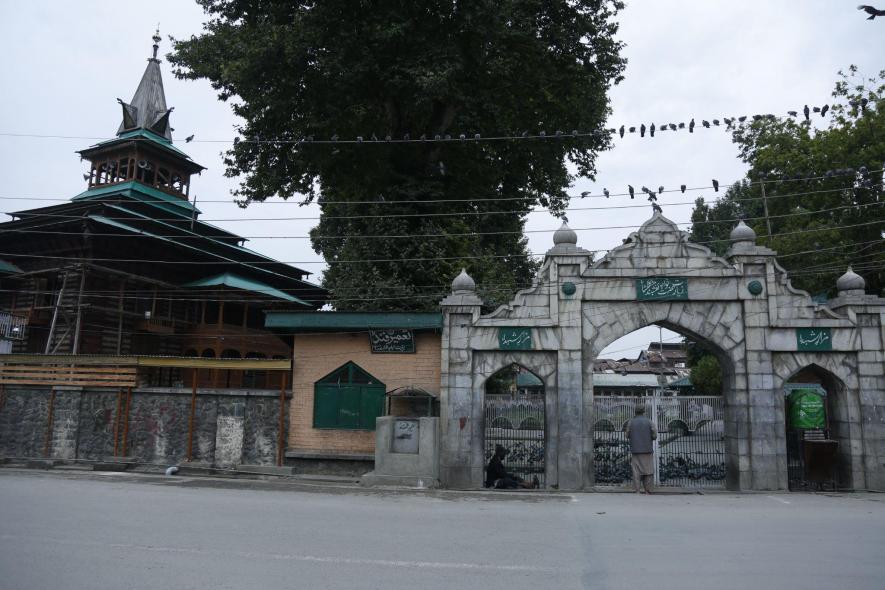
Naqshband Sahib shrine
Srinagar: Political parties in Jammu and Kashmir on Wednesday said they were barred from visiting the Martyr's graveyard in Srinagar by authorities in the Union Territory, drawing ire from the region's mainstream leadership.
“This year also administration barred us from offering Fateha for July 13 martyrs. Locking up Naqshband Sahib shrine highlights the confines of government and their disregard for Kashmir's struggle against oppression,” National Conference spokesperson Imran Nabi said.
According to Imran, the party's general secretary Ali Muhammad Sagar had sought permission to visit the graveyard, also referred to as the Mazar-e-Shuhada but did not receive any positive response from the administration.
The administration had locked the Khwaja Bahauddin Naqshband's shrine in the Nowhatta area, where as many as 22 persons known as the first martyrs of Kashmir are buried. The victims were shot on July 13, 1931, during a protest against the Dogra rule (1846-1947), who had jailed a local leader Abdul Qadeer. The protest swelled and ultimately led to the formation of the Muslim Conference that later splintered into National Conference and made former chief minister Sheikh Abdullah into a household name.
The day was celebrated every year as a state holiday until the administration removed it from the list of holidays after the abrogation of Articles 370 and 35A on August 5, 2019. The local political leadership has since been critical of the authorities for ignoring the region's essential part of politics and history.
NC president Dr Farooq Abdullah while paying tribute to the martyrs, called the day a "landmark" in the history of Jammu and Kashmir. "The brave men who laid their lives on July 13, 1931, belonged to a generation of wisdom and vision. They saw in darkness and despair a vision for the forthcoming generations; they envisioned a society free from bondage, discrimination and oppression," Dr Farooq was quoted saying in a party statement.
The People’s Democratic Party (PDP) also commemorated the victims – who were aged between 19 and 50 – of the Dogra regime and also prayed for the restoration of the UT's "dignity".
"PDP pays glowing tributes to the heroes of July 13, 1931. Those martyrs, with their blood, wrote a new chapter in the history of J&K, which created an urge among the people for freedom & dignity. As we pay homage, we also reiterate our resolve to strive for restoration of J&K's dignity," the party said in a statement.
The Jammu & Kashmir Awami Action Committee (AAC), which is led by incarcerated Mirwaiz Umer Farooq, in a statement, said that this year also, there will be no traditional march to the graveyard due to the detention of Mirwaiz Umer Farooq since 2019. The socio-religious party, however, had urged people to offer Fatiha prayers and visit the Naqshband sb to pay homage to the martyrs.
"On this day in 1931, our ancestors gave their lives to break the shackles of slavery. Their sacrifices continue to teach us that no matter how dark and long the night of oppression gets, it will have to end one day. Their martyrdom cannot be erased from our history or our lives," the Mirwaiz-led Hurriyat Conference said in a tweet.
Stating that the historic day acted as a catalyst for the future in Jammu and Kashmir, CPI(M) leader Mohammad Yousuf Tarigami claimed that despite barring them from visiting the graveyard, the people could not be silenced for long.
"91 years ago on this day, 22 persons were martyred during an anti-monarchy rebellion. This acted as a catalyst for a better future, spurring the establishment of "Naya Kashmir". Can this historic event be obliterated by not allowing the customary wreath-laying ceremony at the "Mazar-e-Shuhada"? How long can people be silenced?" Tarigami said.
Get the latest reports & analysis with people's perspective on Protests, movements & deep analytical videos, discussions of the current affairs in your Telegram app. Subscribe to NewsClick's Telegram channel & get Real-Time updates on stories, as they get published on our website.









